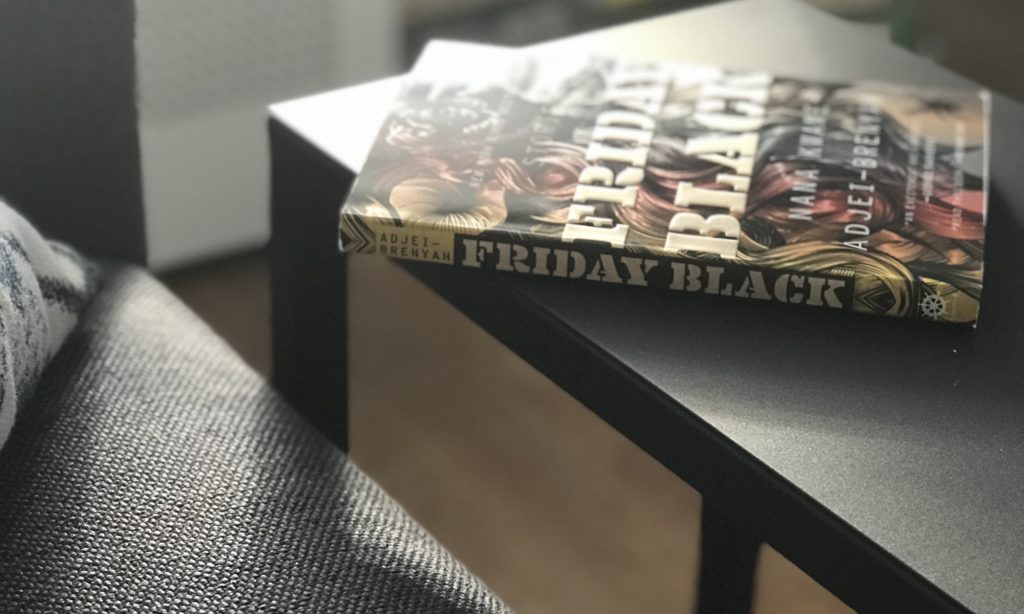I am a book podcast junkie. If I am walking the dog, driving, cooking dinner or folding laundry, chances are good that I am also listening to people talk about books. Some of my favorite bookish podcasts include All the Books, Currently Reading, From the Front Porch, Get Booked and Sarah’s Bookshelves Live. A few months ago, I was introduced, by Anne Bogel of another favorite listen, What Should I Read Next, to a new-to-me book podcast called The Stacks, hosted by Traci Thomas. At first I wasn’t sure I would get a lot out of The Stacks because Traci loves non-fiction, while I am a fiction fan at heart. But I am glad I listened in. Traci introduced me to many titles that I would not have read, including Friday Black by Nana Kwame Adjei-Brenyah.
I have never liked short stories. I have started countless short story collections, made it through the first one or two, and then abandoned the book. I prefer novels because I like to get to know the characters and get rooted in a single setting. I knew, though, that Traci had chosen Friday Black for one of her February reads so when I then saw it on the shelves of my favorite local independent bookstore, The Curious Reader, I decided to give it a try.
Halfway through the first story, “The Finkelstein 5,” I decided that Friday Black should be required reading for every American. In this story, Adjei-Brenyah paints a picture of race and injustice that is both absurd and also sadly close to our current reality. In the story, a white man has killed five black children while ‘protecting’ his son and daughter. In one of the opening paragraphs, a lawyer asks the court, “I ask you, what do you love more, the supposed ‘law’ or your children?” I had chills throughout the entire story. I couldn’t stop thinking about how this scenario was ridiculous yet plausible given the discord and violence playing out in our nation today.
I read Adjei-Brenyah’s entire collection in two sittings. While “The Finkelstein 5” was the most powerful of the stories in my opinion, each one helped me to think more deeply about the issue of race in our country. For example, in “Zimmerland,” we are asked to imagine what would happen if video game-like scenarios were played out in real life at the expense of black lives. And the title story, “Friday Black,” explores not only violence but also our obsession with obtaining more and more things. In this version of Black Friday, customers literally shop to death.
I truly hope that everyone – even people who don’t usually read short stories – will read this important collection.

